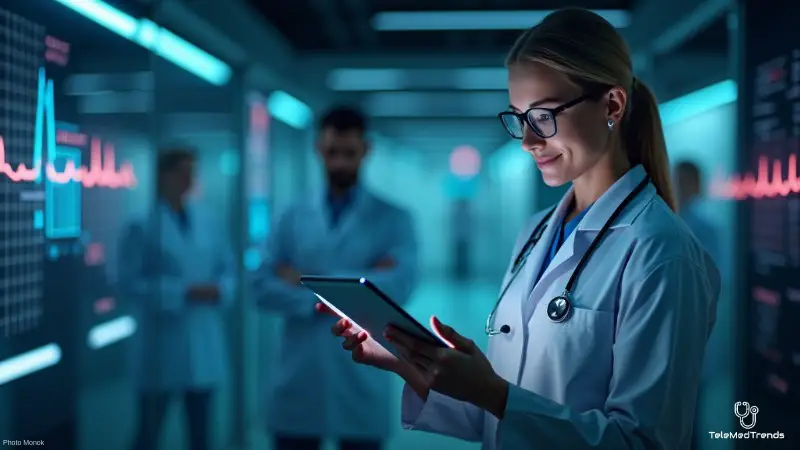Healthcare services have experienced a significant transformation in recent years, primarily driven by the growing trend of remote care.
Advances in technology, such as telemedicine, wearable devices, and health apps, have made it possible for patients to receive medical consultations, monitoring, and support without the need to visit medical facilities in person.
As a result, remote care is becoming an essential component of modern healthcare, improving patient outcomes and convenience while offering greater flexibility for both patients and health experts.
Key Takeaways
Healthcare services are transforming through remote care enabled by technology.
- Remote care improves patient outcomes and convenience while offering flexibility for patients and health experts.
- Machine learning algorithms can predict patient scenarios, detect early warning signs, and personalize treatment strategies.
- Digital engagement tools enable continuous communication with patients, automate appointment notifications, and track treatment effectiveness.
Overcoming barriers to effective remote care
Despite its benefits, remote care faces challenges like data fragmentation and communication gaps. To overcome these, healthcare providers must adopt digital solutions for seamless data integration and real-time communication.
Machine learning algorithms can predict patient scenarios, detect early warning signs, and personalize treatment strategies.
By using advanced medical platforms to analyze patient data, doctors can make more accurate diagnoses and provide more effective treatments, ultimately enhancing patient care and outcomes.
Empowering patients with digital engagement tools
Patient engagement tools enable health professionals to maintain continuous communication with their patients through digital means, automate appointment notifications, provide access to valuable information, and track the effectiveness of prescribed treatments by monitoring patient adherence.
By using these tools, patients can make more informed decisions about their health management, leading to better results.
Additionally, remote monitoring solutions allow medical professionals to track patients’ vital signs and intervene early when necessary. This proactive approach helps prevent serious medical issues that could require hospitalization while improving overall well-being over time.
Telemedicine has revolutionized healthcare delivery, particularly in remote areas where access to timely, quality care is often limited. Virtual consultations enable patients to receive prompt, convenient care without visiting health facilities.
This innovation has played a crucial role in facilitating ongoing patient monitoring, reducing hospital readmissions, and increasing access to medical support for underserved populations.
By strategically integrating digital solutions with traditional care models, health experts can offer a more efficient, effective, and patient-centered approach tailored to each individual’s unique needs.






